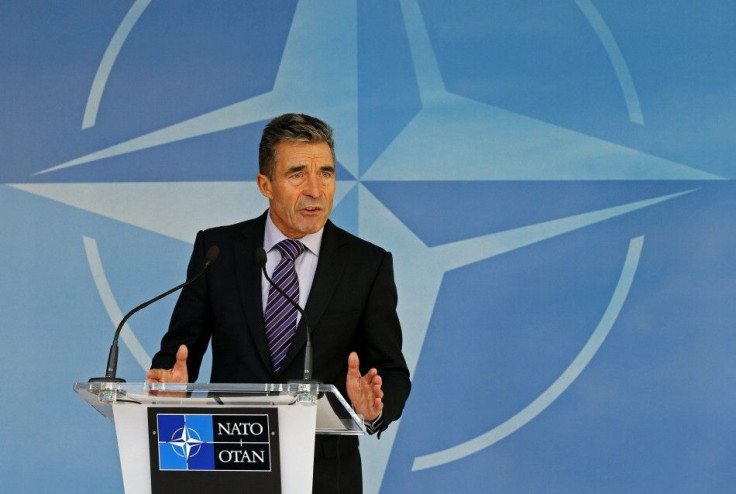NATO Seeks More Funding To Tackle New Threats: Canada, Germany Not Convinced

Amidst the demands from many members to show more teeth, the North Atlantic Treaty Organisation (NATO) has done some plain speak and urged the members to do more.
The Cbc.Ca News reported that the Outgoing secretary general of NATO, Anders Fogh Rasmussen, called for serious introspection by members, who are dodging the mandatory levels of defence spending. Mr. Rasmussen described the events in Ukraine as a wake up call. NATO heads of government summit will be held in Wales from Sept. 4-5, where the Ukraine situation will come up for discussion.
In an interview with CBC Radio, Rasmussen called for a sense of urgency among the members, as the "relatively calm weather" of last 25 years has changed. Mr. Rasmussen said the crisis in Ukraine and flare ups in Syria, Iraq and North Africa have warranted a new alert.
As far as NATO funding is concerned, the chief said, only four countries, including the United States and United Kingdom have met NATO's defence spending target. It is two per cent of a member country's gross domestic product (GDP). But many countries are falling short of this mandate.
Canada's Reservations
Reuters recently reported Canada's reservations in hiking defence spending as per the wishes of NATO. It was also reported that Canada is a key country that is blocking the efforts of NATO towards that goal. Canada is reluctant to commit a higher military spending that is 2 per cent of the GDP, because it feels the demand is not clearly defined and also not justified before the Canadian taxpayers.
In 2006, NATO members pledged to spend 2 per cent of their GDP on defence. In July, British Prime Minister David Cameron wrote a letter to all NATO leaders, urging to increase overall defence spending to meet the changing global threats from failed states and terrorism.
Reuters also quoted a Canadian source, which said the defence spending needs to be tied to specific ends. The response to the crisis in Ukraine need not be in the shape of a 10-year commitment, it said.
Germany is also in sync with Canada's view and reportedly opposed the hike to two per cent of GDP target and said a higher spending should not be construed as a sign of loyalty to the NATO alliance.





















